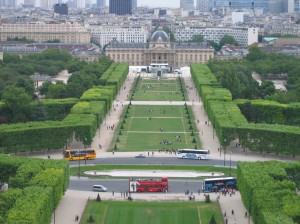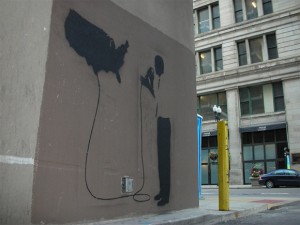So, I always think there are way less of these than there probably actually are. Not only parks per se, like the champs du Mars above, but public, community gardens that are a combination of available land and whatever the local residents want them to be – fruit trees, vegetable patches, sports fields – whatever. There was an article in Harper’s from a while back (referenced here) about the community gardens that were springing up all over that blighted city, we’re talking row crops and feeding people in an urban environment. It didn’t seem so much to be the kind of idyllic Utopia you might imagine; just places where people could become re-attached to the land.
Some of the gaps in (my) perception come, of course, from living in the south, where ‘public’ anything is a kind of semantic variable meaning lesser and/or vulnerable – as in scary, as in, other people might be there.
But living other places, like the above, where space is at more of a premium, I’ve also seen the magnified role public space plays in people’s lives – and the enhanced meaning that derives therein precisely from sharing with so many others.
He probably doesn’t want word to get out but, in the first link, 50 Cent is behind the funding of the garden in Jamaica, Queens. Bette Midler’s got skin this game, too.
One thing maybe not so green – I only saw this article because I got a copy of the paper paper. Hmm.


